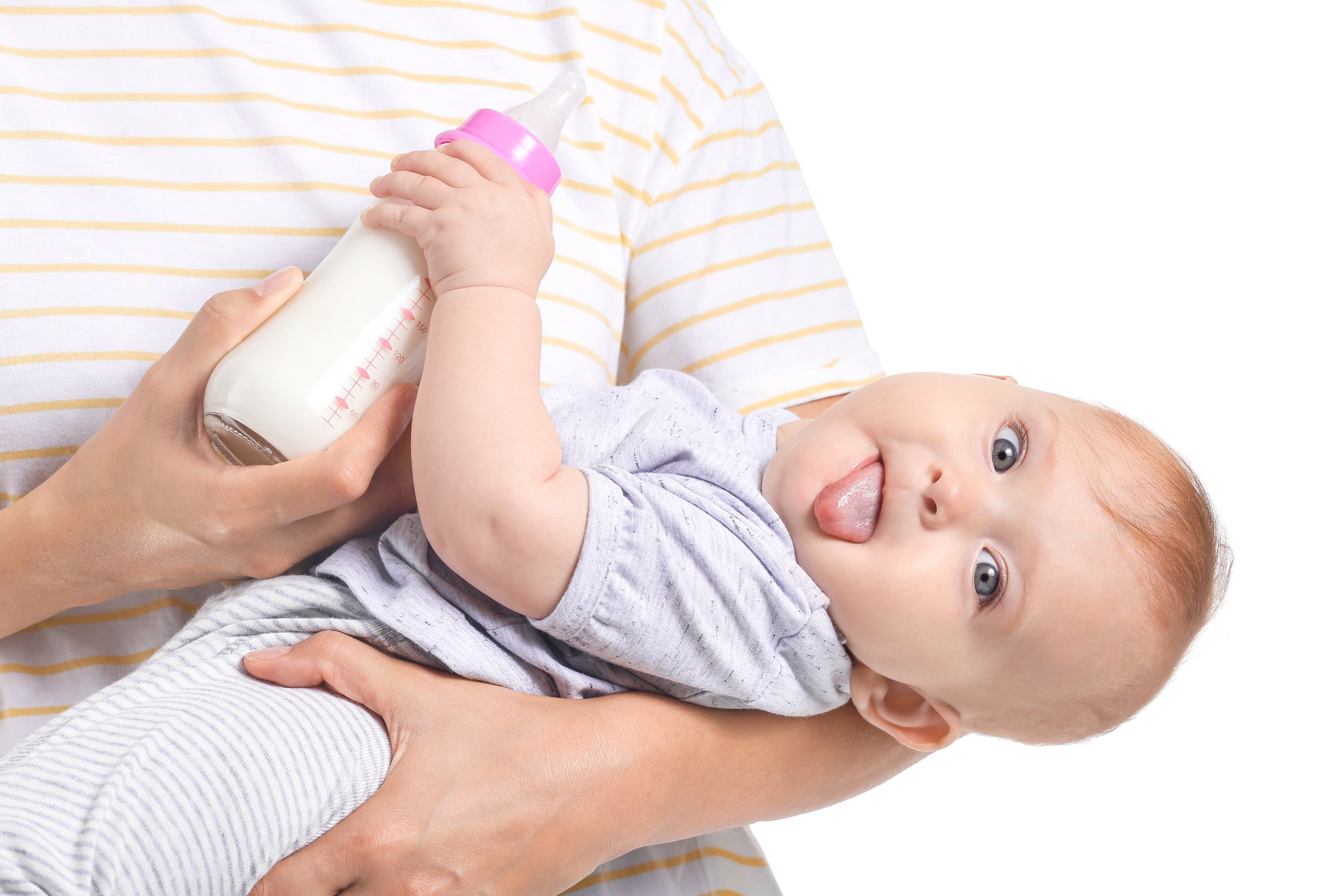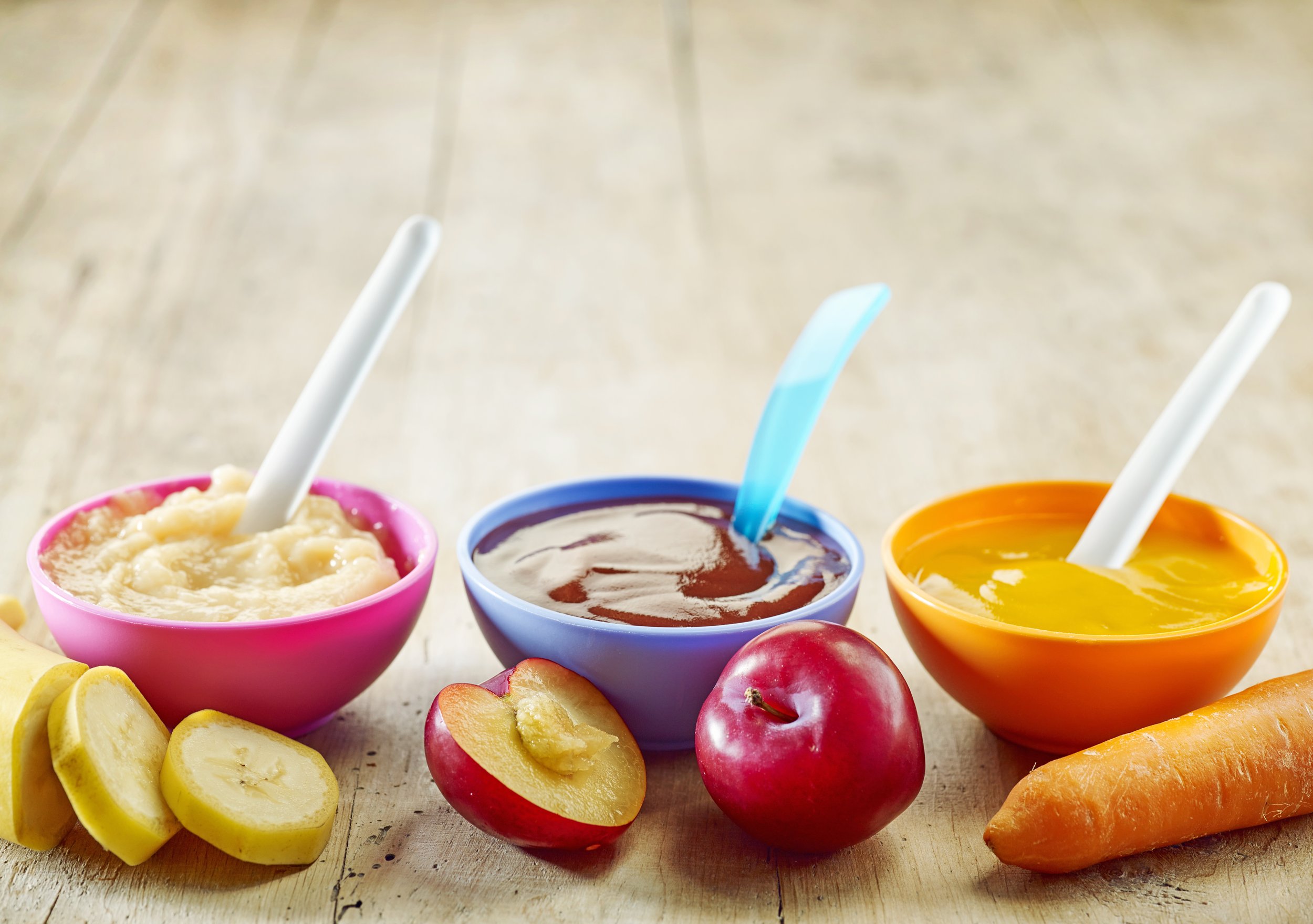What to Do About Gagging
The introduction to solids often comes with some scary moments as babies are likely to gag at some point in this journey. Learn how to help make the transition easier for both you and baby and check out my new digital download on How to Help Your Baby Learn to Chew now!
Tongue Ties: A Speech Pathologist's Perspective
There are many reasons that newborns have difficulty with feeding in the first several weeks and months of life. Feeding is a complicated process that involves 26 muscles and 6 cranial nerves. Infants begin sucking between the 18-24th weeks in utero and swallowing is observed consistently by 22-24 weeks. What does this mean? Their feeding pattern is developed and engrained months before they are born.
dips and dippers!
Supporting self-feeding from the beginning is critical whether you are transitioning your baby to purees or table foods. Spoon, feeding tools, and foods can be great for encouraging chewing skills and safe management of both baby food and whole foods offered in a baby led weaning approach.
Pocketing: When Your Child Won't Swallow Table Food
There are many reasons that a child may pocket food rather than swallowing it - some include: Being afraid to swallow due to a past choking incident Preventing others from force feeding Protecting their airway (and knowing that it is not safe to swallow) An immature swallow pattern can prevent them from swallowing appropriately Limited awareness/sensation of the food in their mouth Enlarged tonsils/adenoids The first step to help your child at mealtimes (no matter what the cause) is making sure that you are being a responsive feeder.
Baby Led Weaning or Spoon-Feeding?
As with most issues in feeding, we tend to take a "middle of the road" approach. We believe there are some really positive messages contained in the Baby Led Weaning movement, however we also believe that skills learned during the spoon-feeding phase are equally as important. As early as two months, babies learn to hold things and quickly begin bringing objects and toys to their mouths between 3-4 months of age. By 6 months old, typically-developing babies demonstrate oral motor skills
Straw Drinking 101
Infants can typically learn to drink from a straw between the ages of 8-9 months old, sometimes earlier. The trick is to find the right type of straw cup and/or activity that will help them learn this oral motor skill. Moving on to a straw cup can be helpful for older infants who have refused a bottle. We have had good success teaching this skill using the Rubbermaid Litterless Juice Box (for those of you who live locally, you can find them at Wegmans in the Tupperware aisle).
Introducing the Bottle to Your Breastfed Baby
There are many reasons to introduce the bottle to your breastfed baby and supporting flexibility around feeding is one of them. Whether you will be returning to work full-time or are just looking to make sure your baby can be fed if you are apart for a few hours, we have some tips to help this introduction go smoothly as well as ideas on how to move forward if it does not. Most importantly, do not wait until you are unavailable to introduce the bottle!
Combining "Old" and "New" Foods to Encourage Acceptance
This strategy can help during the transition to purees as well as table foods. For the baby working on spoon-feeding, add a teaspoon of a new food to a serving of a familiar purée. This can be helpful with green vegetables as well as meats if your baby is having difficulty tolerating certain flavors or textures. After she accepts the new "mixture", increase to two teaspoons of new food and continue to slowly increase the amount.
Let Your Baby Get Messy!
During many initial consultations with families, I ask the question, "What does she do when you give her the spoon?"..
How to Offer Bite-Size Table Foods to Your Baby
The transition to table foods can be very scary for parents of older infants. One of the most common questions we get is, "How big should the pieces be?". The guideline we use is to try to offer cube-shaped pieces the size of the tip of your pinky finger. Parents typically start with minuscule pieces of food, which does not really encourage any kind of chewing as the baby cannot really feel where the pieces are in her mouth or move them appropriately.
listen to your instincts
Crying, not sleeping, screaming during feedings, pushing away, spitting up... sound familiar? It's hard to know what is normal, especially if this is your first baby. Many parents tell us that they have voiced concerns about feeding during appointments with their pediatrician, but they do not feel "heard". What do you do when you feel like something is just not right? Go with your gut. Whether you think there is something going on like reflux, some type of food intolerance, or even an issue
Welcome to Motherhood
I have been reminded several times in the past few weeks how HARD being a new mom is. Watching friends and clients go through the ups and downs of the newborn period, I cannot help but wonder how any of us make it through and especially those whose babies struggle. I realize the following pieces of advice and information are not all original to me and many of us have heard them before, but I think it's important to say them again. Let other moms help you. Whether it's your sister, mother-in-law
There Is No "Force" In Feeding
Respecting your baby's cues is one of the most important pieces of advice I give all parents who come in for therapy. If your 6-month-old infant closes her mouth when you present the spoon, she's telling you she's not ready, she's not hungry, or she can't manage the food you are presenting. Babies and toddlers are very smart and we need to listen to them. It is important to figure out why they are refusing as the first step in turning things around.
Responsive Feeding: An Appropriate Approach for ALL Infants and Toddlers
There are so many reasons why feeding can get off track in the first few years of life. Concerns with weight gain and growth, oral motor incoordination, medical complications such as reflux, and even parent anxiety and/or depression will influence the feeding dynamic. No matter what leads to the path of stressful mealtimes, there is one way back, and that is to learn to be a responsive feeder. In our daily practice, this is the approach we use and model for parents. Whether it is a newborn who
















